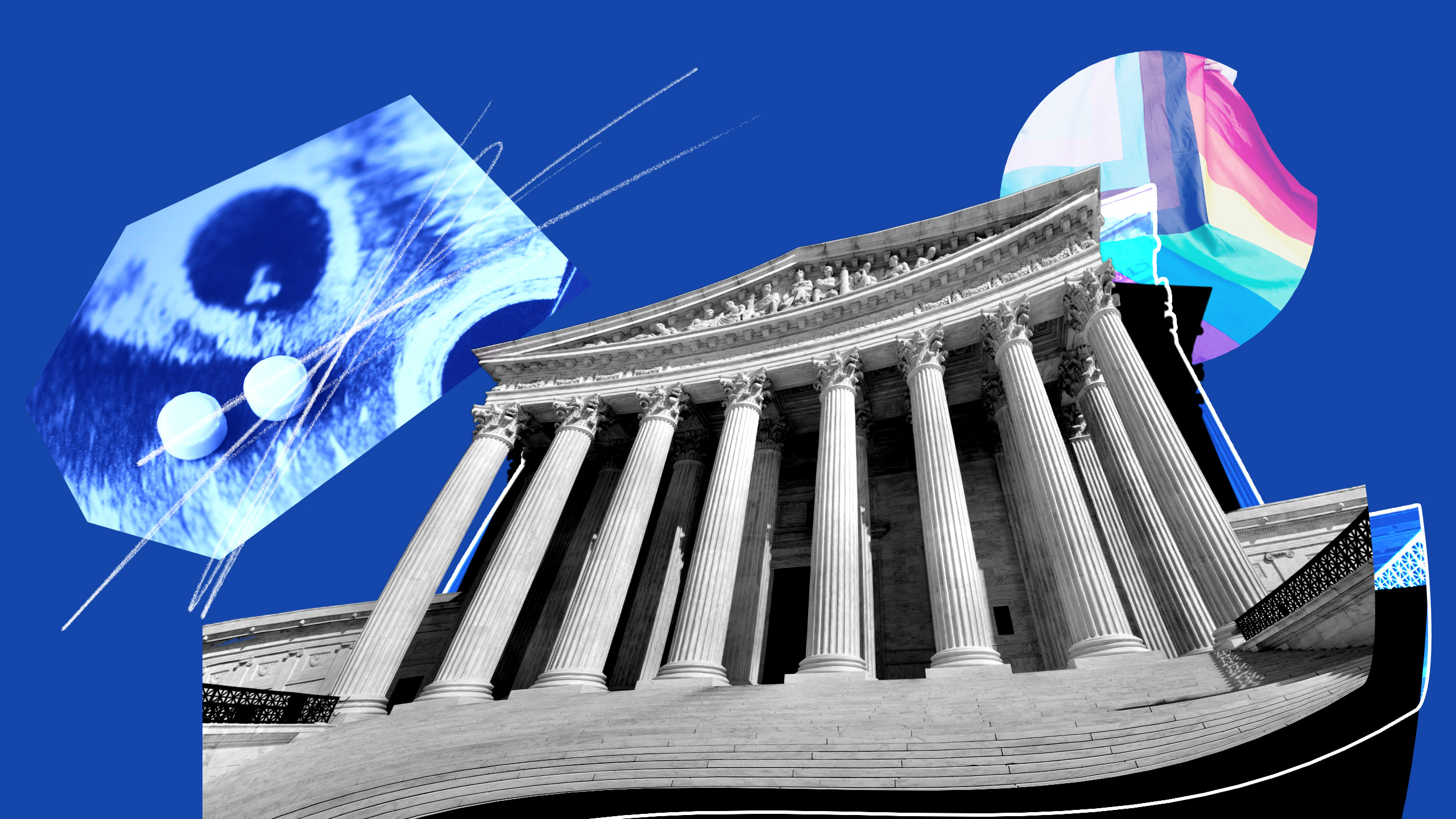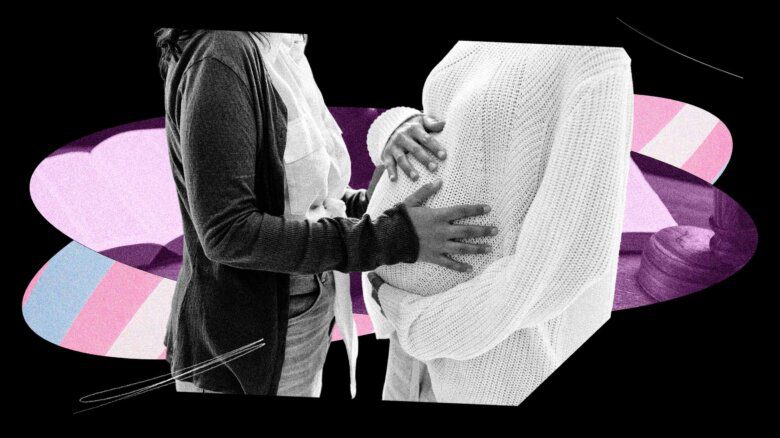As the Supreme Court weighs rolling back access to reproductive care, newly released data indicates that queer people are more likely to have had an abortion at some point in their lives.
Almost twice as many bisexual cis women have had an abortion as compared to straight cis women, according to a June 2 report from the Human Rights Campaign (HRC), America’s largest LGBTQ2S+ rights group. While one in seven heterosexual cis women (15 percent) who have been pregnant have had an abortion, that number jumps to 22 percent of lesbians and 27 percent of bisexual women.
The findings are based upon an 2017–19 National Survey of Family Growth conducted by the Centers for Disease Control and Prevention (CDC). But according to HRC, the survey typically captures fewer than half of all abortions and pregnancies, meaning the real numbers are likely much higher.
“Almost twice as many bisexual cis women have had an abortion as compared to straight cis women.”
Queer communities also see higher levels of mistimed pregnancies. Two-thirds of bisexual women (65 percent) and over half of lesbians (56 percent) report being pregnant earlier than they’d like, compared to 47 percent of straight women. Over a quarter of straight women (27 percent) report having an unwanted pregnancy, increasing to three in 10 bisexual women (29 percent) and four in 10 lesbians (38.9 percent).
Data on non-binary and trans people accessing abortion is more limited due to a lack of targeted research. HRC quoted a 2021 report published in the American Journal of Obstretics and Gynecology, finding that 32 percent of trans, non-binary and gender-expansive people who had been pregnant had ever had an abortion. More than half of pregnancies were unintended.
Additionally, a separate paper from the same researchers found that 36 percent of respondents considered self-managing their abortions without clinical supervision, and 19 percent attempted to do so. While self-managed abortions with misoprostol or mifepristone are very safe, none of these abortions involved those medications— indicating there may be information or access gaps that result in trans people using riskier measures.
LGBTQ2S+ people were also significantly more likely than straight cis women to report abuse relating to their pregnancy. While 1 percent of straight women reported becoming pregnant as the result of to a nonconsenual encounter, that shot up to 3 percent of bisexual women and 14 percent of lesbians. A third of all lesbians (33 percent) seeking abortion reported physical or sexual abuse from the person who got them pregnant.
According to HRC, the results highlight the impact of overturning Roe v. Wade on LGBTQ2S+ Americans. In May, Politico published a leaked draft opinion from Supreme Court Justice Samuel Alito claiming that Roe was “egregiously wrong from the start” and indicating judges’ intention to strike down the landmark 1973 ruling.
“If Roe is overturned, the impact on our community will be huge,” Shoshana K. Goldberg, HRC’s director of public education and research, and author of the fact sheet, said in a statement. “Data shows that lesbian, gay, bisexual and queer cisgender women, and transgender men and non-binary people assigned female at birth are just as—and sometimes more—likely to need abortion services.”
Recent polling indicates that a majority of Americans oppose repealing Roe. In a May 3 poll conducted by Politico and Morning Consult, 50 percent of voters said the abortion access ruling should not be overturned, compared to 28 percent who say it should be repealed.
“Reproductive freedom and bodily autonomy are critical to our community.”
But even though abortion is still currently legal on the federal level, reproductive healthcare in the U.S. is still a challenge to access. States like Texas and Oklahoma have passed draconian anti-abortion laws that allow private citizens to sue anyone suspected of providing an abortion, and at least 13 states—including Tennessee, Louisiana and Utah—have trigger laws that would blanket-ban abortion if the ruling is overturned.
The Guttmacher Institute, a think tank that supports reproductive healthcare, noted that an additional 13 states would likely ban abortion in the wake of Roe’s repeal, such as Ohio, Florida and Georgia.
Overturning Roe could open the door to the repeal of other watershed rulings on LGBTQ2S+ equality—as the decision would dramatically undermine the right to privacy or bodily autonomy. Alito’s draft opinion explicitly takes aim at Obergefell v. Hodges, the Supreme Court’s 2015 ruling legalizing marriage equality, and Lawrence v. Texas (2003), which struck down state-level laws criminalizing sodomy.
The draft opinion has not yet been finalized, and a ruling is expected in late June or early July. That leaves weeks of anxiety still ahead.
“While it is normal and understandable to fear what a Court untethered to precedent will do to so many of our hard-won rights, we must not lose sight of the threat to our community posed by an overturn of Roe,” Goldberg said. “Reproductive freedom and bodily autonomy are critical to our community.”


 Why you can trust Xtra
Why you can trust Xtra